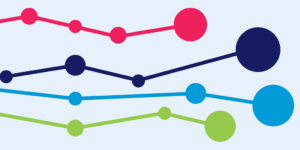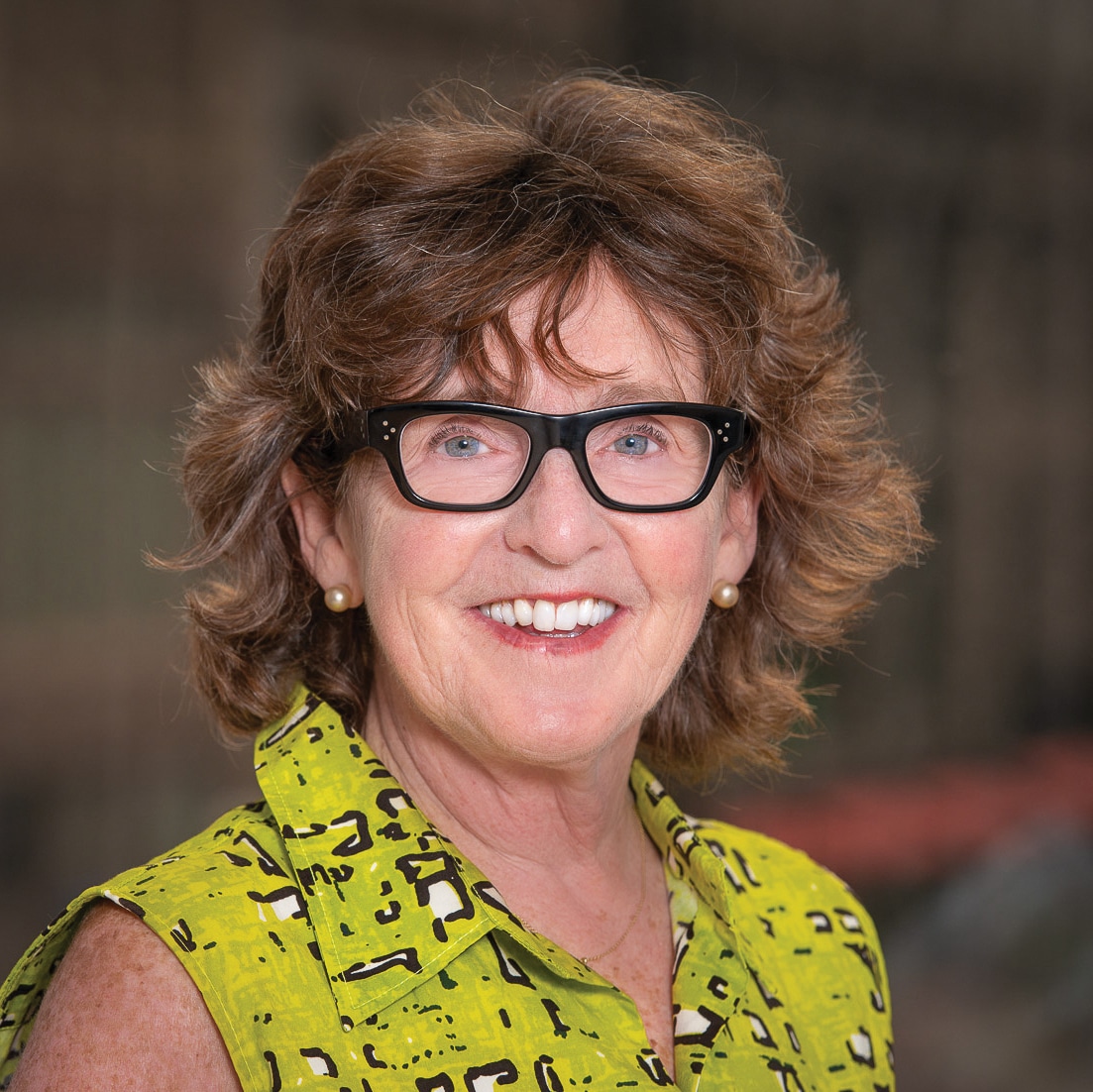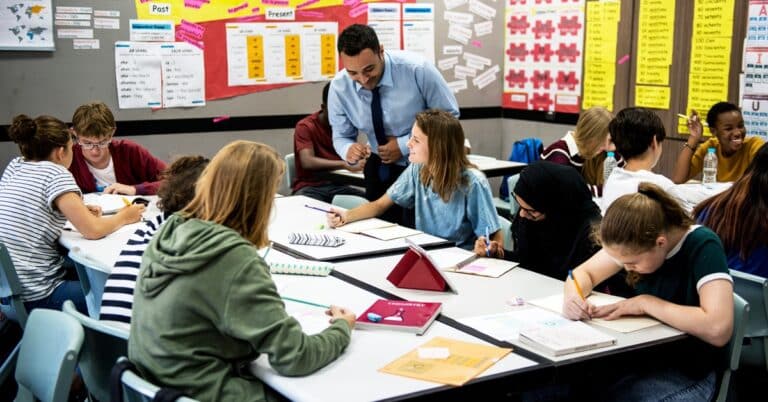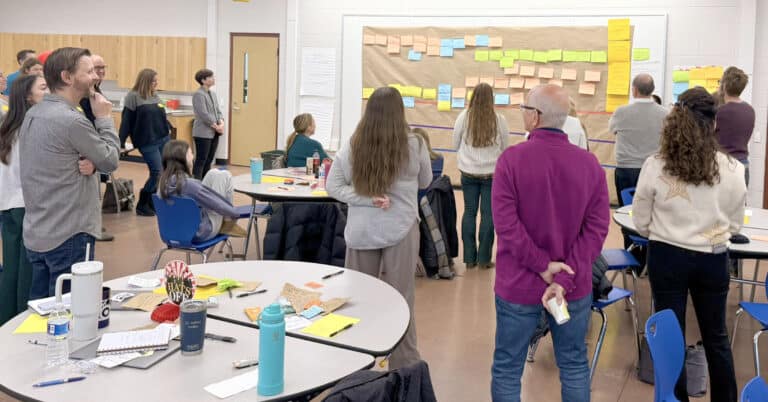How do communities create schools that work for the 21st century? A recent visit to Westview Elementary in Charleston, South Carolina, helped illustrate many of the traits necessary:
- A shared understanding of what a high school graduate should be able to know and do, which for South Carolina is clearly outlined in their profile of a graduate
- Leaders who will support teachers’ professional development so they can unlock student engagement with student-centered learning
- Teachers who experience joy in working to develop children academically and socially
- A technical infrastructure which supports teachers’ need for personalized data on student growth and engages students in learning
- A community which supports its schools and provides opportunities for real world learning

In South Carolina, we saw both a state profile of a graduate, developed with broad community support, and a state definition of personalized learning, both of which enable schools to align to a shared objective. The South Carolina Office of Personalized Learning also supports professional development of teachers and leaders throughout the state.

When the South Carolina Department of Education launched their Office of Personalized Learning, their aim was clear: to develop the capacity of district leaders and educators to create personalized, student-centered learning environments that prepare all students, not just some or most, for success. Learn more.
South Carolina’s journey to personalized learning started with school superintendents realizing they were not meeting the needs of employers. The South Carolina Department of Education has played a key role in developing shared definitions and professional development support. The results of this multi-layered approach were in display at Westview Elementary in Berkeley County.
The #assessment and #accountability conversation: South Carolina has an appetite to include measurements of the competencies in the SC Profile of a Graduate. #personalizeSC @knowledgeworks pic.twitter.com/7yQhZWmR6E
— Eileen Rudden (@eileenrudden) February 12, 2020
South Carolina “inquiry labs” for teachers and leaders are a valuable way to expand #personalizedlearning. @LearnLaunch #MAPLE calls them learning tours. #personalizeSC @knowledgeworks pic.twitter.com/FZBXaZ5PoK
— Eileen Rudden (@eileenrudden) February 12, 2020
The move towards personalized learning at Westview Elementary started with the Berkeley County school board seeing a need to partner with educators to figure out how to revamp schools for 21st century learning. At Westview Elementary, kids are working on their own and in groups in classrooms and in the hallways. Each child is moving along his or her own learning pathway and asking to conference with the teacher when they or their team needs help. It looks very different than the traditional model of students in rows, a teacher up front and the classroom door closed.
In classroom visits and during a panel discussion, teachers talk about not “being an island… It feels like a village now.” They previously knew the learning standards they were expected to teach, but now know them at a much deeper level. And the students know them, too, as well as what is expected of them. The teachers we spoke with said they know their children in so much more detail: both academically and personally. Knowing the students better helps the teachers motivate each student individually. They’ve seen a shift in their school culture from “Why didn’t you get it?” to “How can I help you?”
Thanks to the Third Graders @SchoolWestview for allowing me to get in the boat! Sorry I rocked it… #LearningPersonalized https://t.co/OnkHNhveVM
— Chuck Ambrose (@DrChuckAmbrose) February 12, 2020
.@SchoolWestview learners shared, “Because we have more independence, we can work faster or slower, and we can choose our evidence of learning.” The PCBL insights from these 3rd, 4th, & 5th graders were incredible. @knowledgeworks @SCpersonalized pic.twitter.com/WIzgWE9rDR
— Virgel Hammonds (@VirgelHammonds) February 13, 2020
What’s a good day for a student? They said, “When I accomplish my goals.” Students learn to set daily goals: behavior goals, reading goals and task goals. “Hallway privileges are a motivator” and “silent lunch” can be the consequences for goofing off. Students work both alone and in groups and reach out for help from their teachers to meet their goals.
Principal Shawn Wimmer said a dedicated instructional coach was a requirement to move to personalized learning. She also invested in more planning time and professional development for teachers during the school day.
According to Wimmer, teachers and students have been the easiest to win over to the new approach. Teacher turnover, an issue in South Carolina, has declined at her school. It is still early days, but fewer students seem to need “special ed” now that each child has personalized instruction. Academic growth of underperforming students has advanced, while students are also free to advance beyond their current “grade level.” Parents have been the harder audience to engage as champions of personalized learning and urged a focus on developing school leaders to support the change.
It is great to see the progress in South Carolina! The alignment at state, district, school and teacher leadership is enabling schools to move to personalized, competency-based learning.
The South Carolina Department of Education is helping teachers expand student-centered practices and make personalized learning in South Carolina a priority, and inquiry labs are just one of the ways they’re doing it.





